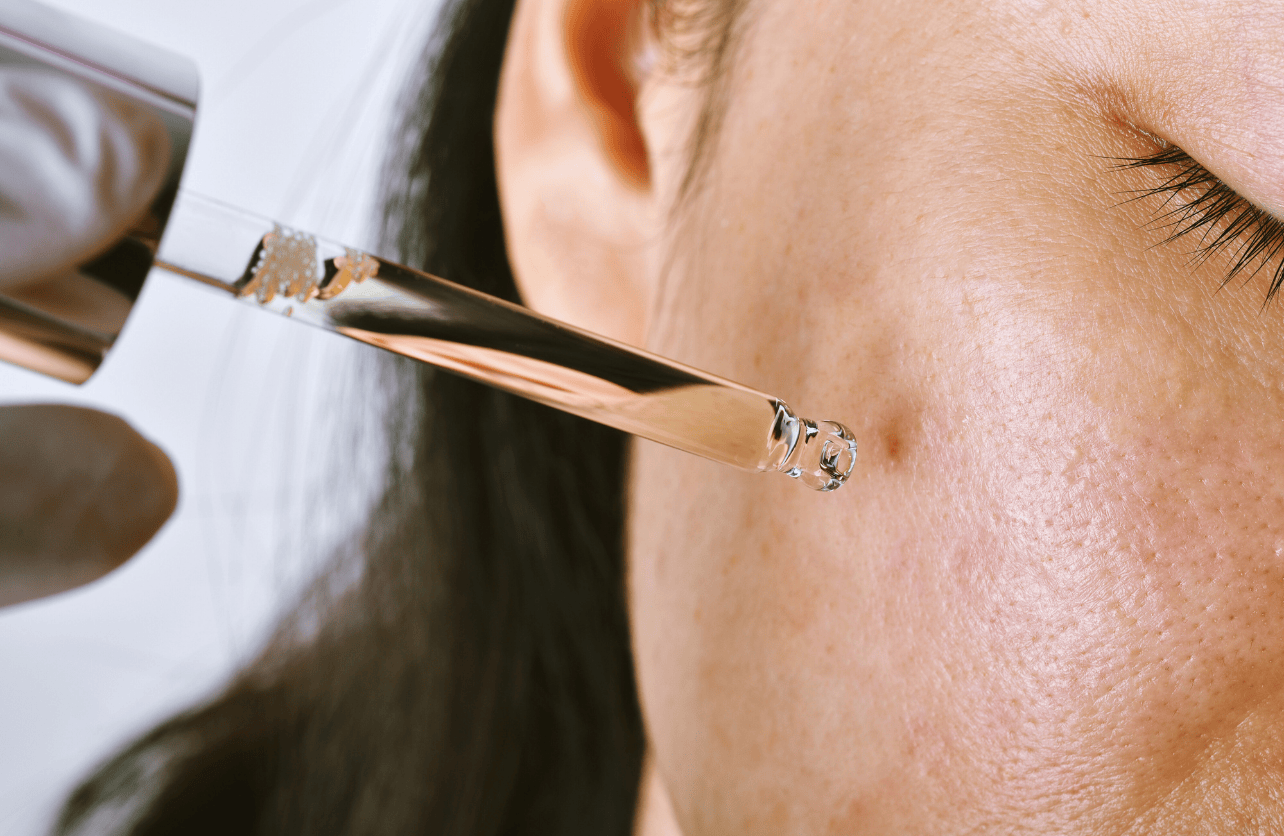Does Retinol Help with Acne?

Retinol has long been celebrated as a powerhouse ingredient in skincare, known primarily for its anti-aging properties. However, its benefits extend beyond reducing wrinkles and fine lines—it can also be an effective treatment for acne. As a derivative of vitamin A, retinol works by accelerating cell turnover, unclogging pores, and reducing inflammation, making it a valuable tool in fighting breakouts.
If you’re wondering whether retinol can help with acne and how to use it correctly, here’s everything you need to know.
How Retinol Works for Acne
Retinol tackles acne through several key mechanisms:
Prevents Clogged Pores
Acne often develops due to the buildup of dead skin cells, oil, and bacteria inside pores. Retinol works by speeding up skin cell turnover, which prevents these dead cells from accumulating and clogging pores.
Reduces Inflammation
Inflammation plays a major role in acne formation, especially in cases of cystic acne and red, swollen pimples. Retinol has anti-inflammatory properties that help calm breakouts, reducing redness and swelling over time.
Regulates Sebum Production
Excess oil (sebum) production contributes to acne, particularly in those with oily or combination skin. Retinol helps regulate oil levels, preventing pores from becoming overly greasy and reducing the likelihood of breakouts.
Improves Skin Texture and Scarring
Retinol not only helps treat active acne but also improves the appearance of acne scars and uneven texture by stimulating collagen production. Over time, this can lead to smoother, more even-toned skin.
Retinol vs. Prescription Retinoids for Acne
While over-the-counter retinol can be effective for mild to moderate acne, prescription-strength retinoids are available for more severe cases. Here’s how they compare:
- Retinol (OTC): Works gradually and is gentler on the skin, making it suitable for beginners or those with sensitive skin.
- Adapalene (OTC & Prescription): A less irritating retinoid commonly used for acne treatment (available in Differin Gel).
- Tretinoin (Prescription): A more potent form of retinoic acid, often prescribed for stubborn acne.
- Tazarotene (Prescription): One of the strongest topical retinoids, mainly for severe acne or resistant cases.
For those with mild to moderate acne, it is a good approach to start with OTC retinol and work up to stronger retinoids if needed.
How to Use Retinol for Acne (Without Over-Irritating Your Skin)
Retinol can be highly effective for acne, but using it incorrectly can cause dryness, redness, and peeling. Follow these steps to introduce it into your routine properly:
1. Start Slowly
- Begin by using retinol once or twice a week to assess how your skin reacts.
- Gradually increase to every other night as your skin builds tolerance.
- Some people may eventually use it nightly, but this depends on individual skin sensitivity.
2. Apply to Dry Skin
- After cleansing, wait at least 10-15 minutes before applying retinol.
- Applying it to damp skin increases absorption but also heightens irritation.
3. Use a Pea-Sized Amount
- A little goes a long way! Apply a pea-sized amount to your entire face, avoiding the eye area, corners of the nose, and lips.
4. Follow with Moisturizer
- Retinol can be drying, so always follow up with a gentle, hydrating moisturizer.
- If you have sensitive skin, try the “sandwich method”: Apply moisturizer before and after retinol to reduce irritation.
5. Always Wear Sunscreen
- Retinol makes your skin more sensitive to the sun, so apply a broad-spectrum SPF 30+ every morning.
- Skipping sunscreen can lead to sunburn, irritation, and worsened acne scars.
Common Side Effects of Retinol (And How to Manage Them)
Using retinol for acne can come with some temporary side effects, especially in the first few weeks. These may include:
- Redness and irritation → Reduce frequency or use a lower-strength formula.
- Dryness and peeling → Apply moisturizer generously.
- Increased breakouts (Retinol Purge) → This is normal as the skin adjusts; continue usage unless irritation is severe.
If irritation persists beyond 6 weeks, consult a dermatologist to determine if retinol is right for you.
When Will You See Results?
Retinol takes time to show visible improvements. Here’s a general timeline of what to expect:
- 1–4 weeks: Skin may feel dry, with mild irritation or purging.
- 4–8 weeks: Acne may start improving, with fewer breakouts.
- 12+ weeks: Noticeable reduction in acne, smoother skin, and faded scars.
Patience is key! Retinol isn’t a quick fix, but consistent use can lead to significant long-term improvements.
Who Should Avoid Retinol for Acne?
Retinol is great for most people, but it isn’t for everyone. You should avoid retinol if:
- You have severe rosacea or eczema, as it may worsen irritation.
- You’re pregnant or breastfeeding (retinoids are not safe during pregnancy).
- You’re already using strong exfoliants (AHAs/BHAs) or prescription acne treatments (unless recommended by a dermatologist).
Final Thoughts: Is Retinol a Good Choice for Acne?
Yes! Retinol is a proven, effective treatment for mild to moderate acne. It helps prevent clogged pores, reduce inflammation, and improve skin texture. However, it requires consistent use, patience, and proper application to avoid irritation.
If you’re just starting out, go slow, use SPF daily, and hydrate your skin well. And if OTC retinol doesn’t provide enough results, consult a dermatologist about prescription-strength options.
Building a Stronger You
Supplement Institute is the fruit of extensive online publishing experience, spanning the breadth of SEO strategies to the nuances of paid advertisements. Our journey, marked by significant achievements and learning moments, inspires our core mission: to empower our readers with an abundance of information. By sharing insights and key learnings, we aim to provide you with the knowledge needed to navigate the complex world of supplements, helping you make well-informed decisions for your health and well-being. Welcome to Supplement Institute, where information is your greatest supplement.